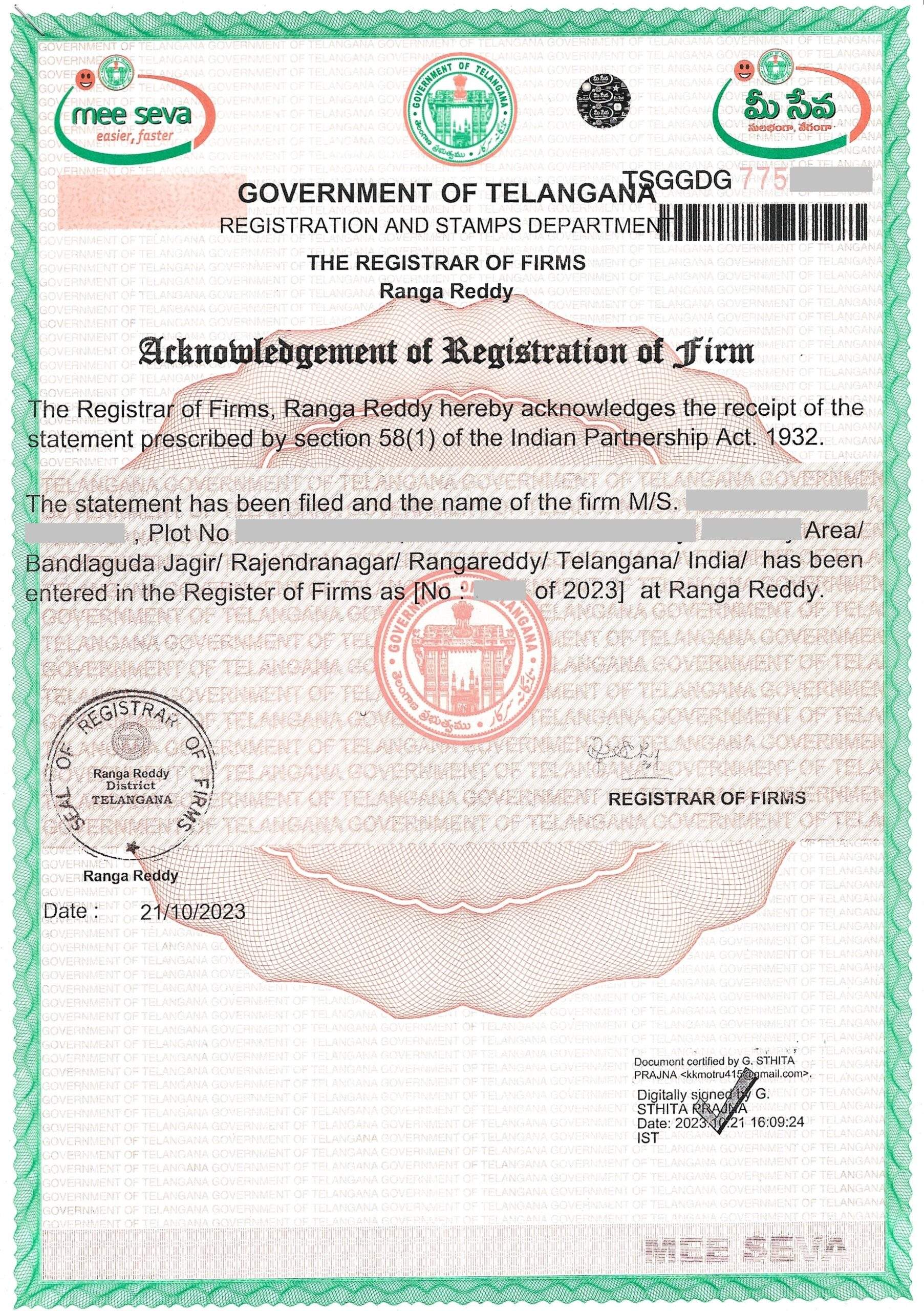Partnership Firm Registration Services Hyderabad.
Looking to start a business with a partner in Hyderabad? Whether you’re a startup or a family business, registering your partnership is a vital first step. At Invention Tax Solutions, we provide expert assistance in Partnership Firm Registration services in Hyderabad, ensuring a legally compliant and smooth process.
Why Register a Partnership Firm in Hyderabad?
Hyderabad is home to thousands of small businesses that thrive through partnerships. A registered partnership firm gives your business legal identity, helps manage partner responsibilities, and improves trust with banks, customers, and vendors.
Registering your firm under the Indian Partnership Act, 1932 also helps avoid disputes and protects your rights in case of legal disagreements.
Key Benefits of Partnership Firm Registration
- Legal Recognition of your business entity
- Well-Defined Partner Roles through the partnership deed
- Easier Access to Loans and Bank Accounts
- Protection in Case of Disputes
- Eligibility for Government Tenders and MSME Schemes
- Simpler Compliance Compared to Companies
A registered partnership firm shows credibility and helps you grow with legal support.
Who Should Opt for Partnership Firm Registration?
This type of registration is ideal for:
- Family-run businesses
- Professionals like architects, consultants, or lawyers
- Small and medium-sized traders
- Manufacturers or service providers with 2 or more owners
If you plan to co-own and manage a business in Hyderabad, registering as a partnership firm is a smart move.
Documents Required for Partnership Registration
To register your partnership firm in Hyderabad, you’ll need:
- PAN Card of all partners
- Aadhaar Card of all partners
- Passport size photographs
- Utility bill or rental agreement for business address
- Partnership Deed (we help you draft it)
- Firm name and business activity details
Optional:
- GST Registration (if applicable)
- MSME Registration for government benefits
Our Complete Partnership Firm Registration Package Includes:
- Free Consultation on structure & name selection
- Drafting of Partnership Deed as per your business terms
- Stamp Paper Procurement & Notarization
- Filing Application with Registrar of Firms
- PAN & TAN Application for the Firm
- Guidance on GST, MSME & Other Licenses
Step-by-Step Registration Process
- Initial Consultation to understand your business model
- Document Collection & Verification
- Partnership Deed Drafting and Notarization
- Online Submission with Registrar of Firms
- Certificate of Registration Issued
Typical timeframe: 5–7 working days
Why Choose Invention Tax Solutions?
- Expert Legal Advisors with 10+ years of experience
- End-to-End Documentation Support
- Transparent Pricing – No Hidden Charges
- Fast Turnaround Time
- One-stop Business Solution
Real Client Story
Success Case: SK & Sons Traders (Hyderabad)
Two brothers launched a wholesale trading business but faced problems in opening a current account. We helped them register their firm, draft the partnership deed, and get a PAN.
“The whole process was seamless. We got our partnership deed and certificate in just a few days. Invention Tax Solutions is truly professional.”
Frequently Asked Questions (FAQs)
1. Is registration of a partnership firm mandatory?
No, it’s not mandatory but highly recommended to enjoy legal protection and business benefits.
2. How long does the partnership registration process take?
It typically takes 5–7 working days.
3. What is a partnership deed?
It is a written agreement outlining the terms, profit-sharing ratio, and duties of each partner.
4. Can I start a firm with my family member?
Yes, you can start a partnership firm with any individual including relatives.
5. Is there a limit to the number of partners?
A partnership firm can have a maximum of 50 partners.
6. Do I need to open a bank account in the firm’s name?
Yes, a current account in the firm’s name is essential for operations.
7. Is GST mandatory for partnership firms?
GST is mandatory only if your turnover exceeds the threshold limit.
8. Can a partnership firm be converted to a private limited company?
Yes, we can assist you in converting your partnership firm to a company later.
9. Will I get a certificate after registration?
Yes, you will receive a Partnership Firm Registration Certificate from the Registrar.
10. Do you help with partnership deed registration too?
Absolutely. We draft, print on stamp paper, and notarize your deed as part of our service.
Start Your Partnership Firm the Right Way
Kickstart your business journey with proper registration and expert help. With Invention Tax Solutions, Partnership Firm Registration in Hyderabad is simple, fast, and fully compliant.
Call Us: +91-7993132530
Email: contact@inventiontax.com
Visit: www.inventiontax.com
Or click “Buy Now” to register your firm today!



